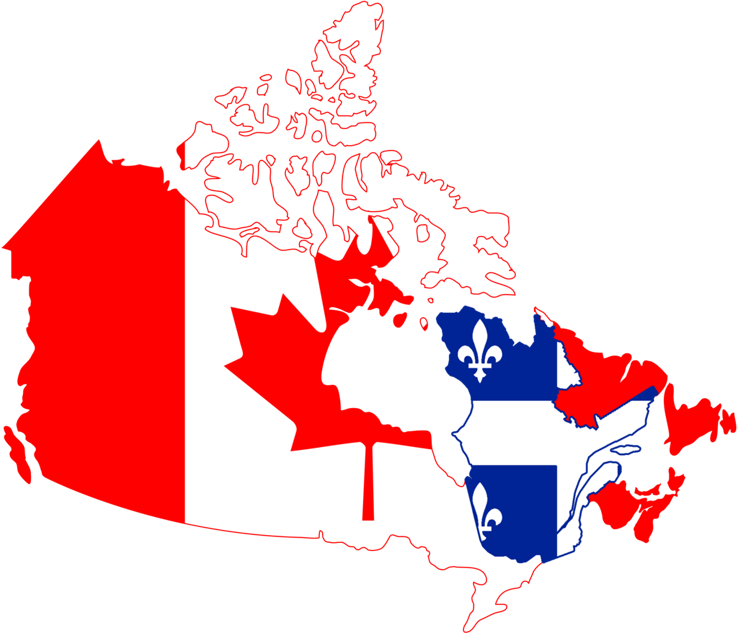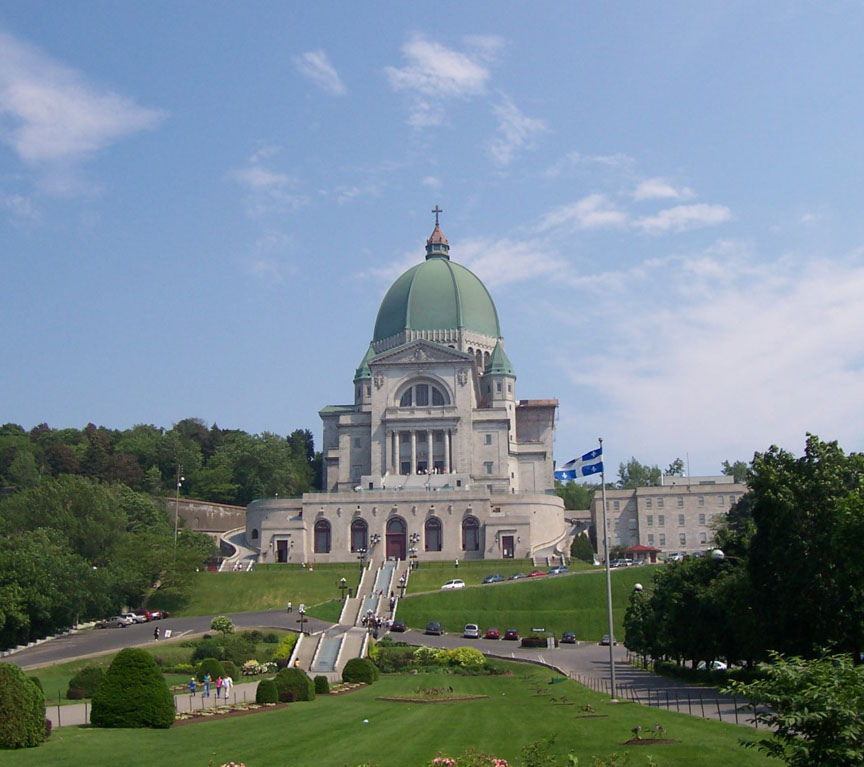Hugh Segal on Quebec in Question today .. even if Pauline Marois wins majority things are not what they used to be
Mar 5th, 2014 | By L. Frank Bunting | Category: In Brief The half-dred reprise of Quebec in Question that certain ‘journalists, bloggers, and political junkies’ have been spreading gloom about for a while now has finally arrived. See, eg : “Coup d’envoi mercredi de la campagne électorale” and “Let the games begin: Pauline Marois expected to call Quebec election for April 7.” (And, now most definitively : “Des élections générales au Québec le 7 avril prochain.”)
The half-dred reprise of Quebec in Question that certain ‘journalists, bloggers, and political junkies’ have been spreading gloom about for a while now has finally arrived. See, eg : “Coup d’envoi mercredi de la campagne électorale” and “Let the games begin: Pauline Marois expected to call Quebec election for April 7.” (And, now most definitively : “Des élections générales au Québec le 7 avril prochain.”)
A Tuesday, March 4, 2014 Canadian Press report nicely summarized the essential bottom lines, as currently viewed by those outside who pretend to know something about Quebec politics. Parti Quebecois Premier Pauline Marois, who now has only a minority government, will be facing “rookie Liberal Leader Philippe Couillard,“ and “leader of the right-of-centre Coalition party, Francois Legault. … Marois is aiming for a majority mandate as the perceived front-runner – thanks to her government’s controversial-yet-popular secularism charter.”
We will apparently know just how wise this view of things really is on the evening of April 7 (or maybe the next morning) – not much more than a month away. But if Pauline Marois does win a majority of seats in the Quebec National Assembly (albeit with nothing like a majority of the province-wide popular vote), it seems reasonable to anticipate some kind of third referendum on whether Quebec wishes to retain its present “nation within a united Canada” relationship with the rest of the country, or try something somehow more theoretically “sovereign.”
A third Quebec sovereignty referendum of this sort may not be inevitable. To some of us who have been watching from a distance for a long while, it remains unclear just where Ms Marois and the Quebec sovereigntist movement of 2014 think they are going. (Moreover, as Andy Radia has just pointed out: “Using the most recent opinion polls, a polling analyst suggests that the race is a close one but that the Parti Quebecois are on track to win another minority [NOT majority] government.”) But even if there is a third referendum at some point over the next four or five years, Canada may have less to fear from such things than it thought it did in the past.
 The rest of Canada in the early 21st century, that is to say, is not going to do a Quebec that votes to leave the confederation any favours at all. (Not a threat, just a fact, as it were.) On the other hand, as the recent federal-provincial deal on the Canada Job Grant has shown, a Quebec that chooses to remain within Canada can expect some practical recognition of “Quebec’s ‘unique character’.” Or the ultimate defence of the confederation in Quebec is that being part of Canada makes for a stronger (and more effectively French-speaking) Quebec than going it alone, right next to the anglo-hispanic sea of the rest of North America.
The rest of Canada in the early 21st century, that is to say, is not going to do a Quebec that votes to leave the confederation any favours at all. (Not a threat, just a fact, as it were.) On the other hand, as the recent federal-provincial deal on the Canada Job Grant has shown, a Quebec that chooses to remain within Canada can expect some practical recognition of “Quebec’s ‘unique character’.” Or the ultimate defence of the confederation in Quebec is that being part of Canada makes for a stronger (and more effectively French-speaking) Quebec than going it alone, right next to the anglo-hispanic sea of the rest of North America.
At the moment, there seem at least a few reasons to believe that even some sides of the Quebec sovereigntist movement are beginning to appreciate the potential in this kind of argument. And there are at least a few parallel signs of a new willingness in the rest of the country to give Quebec the breathing room it needs – even among some partisans of the Conservative Party of Canada (to say nothing of the two rising-star Quebecois in federal politics, Liberal leader Justin Trudeau and New Democrat leader Thomas Mulcair).
For a provocative case in point, see the last six paragraphs of Conservative Senator Hugh Segal’s February 7, 2012 “Closing Remarks,” at “The Quebec Question for the next generation” conference, held by the School of Public Policy at the University of Toronto.
Senator Segal (a Conservative appointed by the Liberal Prime Minister Paul Martin) began his last six paragraphs with : “There is a creative agenda for cooperation and engagement that underlines the respect for diversity and cultural duality at the soul of a constructive Quebec/Canada relationship. If, as Parliament has affirmed in November, 2006, Quebecois are a ‘nation’ within a united Canada, then it is time we all asked ourselves how the genuine benefits of a post nation-state ‘new multinational’ Canada can best be achieved-in social, economic and geopolitical terms. Quebec’s capacity to energize this debate and search should be celebrated. It is the kind of positive “projet du societe” task a country with our resources, relative wealth and even temperament should embrace with courage and good will!”
* * * *
Senator Segal (one of only a few current Canadian senators who often have worthwhile things to say in the broader public debate) carried on for five more paragraphs. And at the end of these paragraphs I at least find myself wondering how any Quebec sovereigntist reader of such calculated commentary can come away without at least confronting the thought that the Quebecois nation can have a stronger future inside than it can outside Canada. Or as Senator Segal further explains (in only half-unintelligible technical jargon) :
“Dynamic federalism is the option Quebec’s sovereign subsidiarity poses as an opportunity for our Canadian version of confederal government. Federalism is a system of government that embraces the core reality of a diversity of local needs and opportunities beyond the central exigences for monetary, macroeconomic, defence and foreign policy requirements. There would be no Canada without this kind of supple federalism; and our brand of supple federalism is because of the distinct needs, dynamics and “revendications legitimes et traditionelles” of Quebec.
“While various issues may be sorted out for short periods from time to time, it is still true that federalism must adapt and adjust to stay relevant and constructive. Asymmetry was the great Pearsonian sort-out with leaders in Quebec like Lesage and Johnson from both sides of the Quebec political spectrum.
“Down the road, the challenge will be more about what dynamic subsidiarity means and how different approaches on health care, post-secondary education, the environment, aspects of settlement and immigration policy and even the administration of justice can be accommodated within a multinational confederal union called Canada.
“I am a decentralist and believe that pragmatic devolution is always the right way ahead. A federal government that is nimble, sophisticated and focused on its national priorities and provinces with the competence to discharge their full scope and breadth makes more sense than underfunded provinces unable to meet their constitutional duties and a federal government rampant with spending power it should not have in areas of provincial jurisdiction.
“Addressing the Quebec question is more than just ‘la question nationale’. It is to address the very purpose and substance of governing ourselves competently and responsibly in Canada itself.”
My own ultimate feeling here is that I am not entirely clear on just what Senator Segal means. But I think it is nonetheless a hopeful omen for some kind of united Canada that happily includes the Quebecois nation, and everything and everyone else who is interested.
Whether Pauline Marois finally holds yet another Quebec sovereignty referendum or not.





